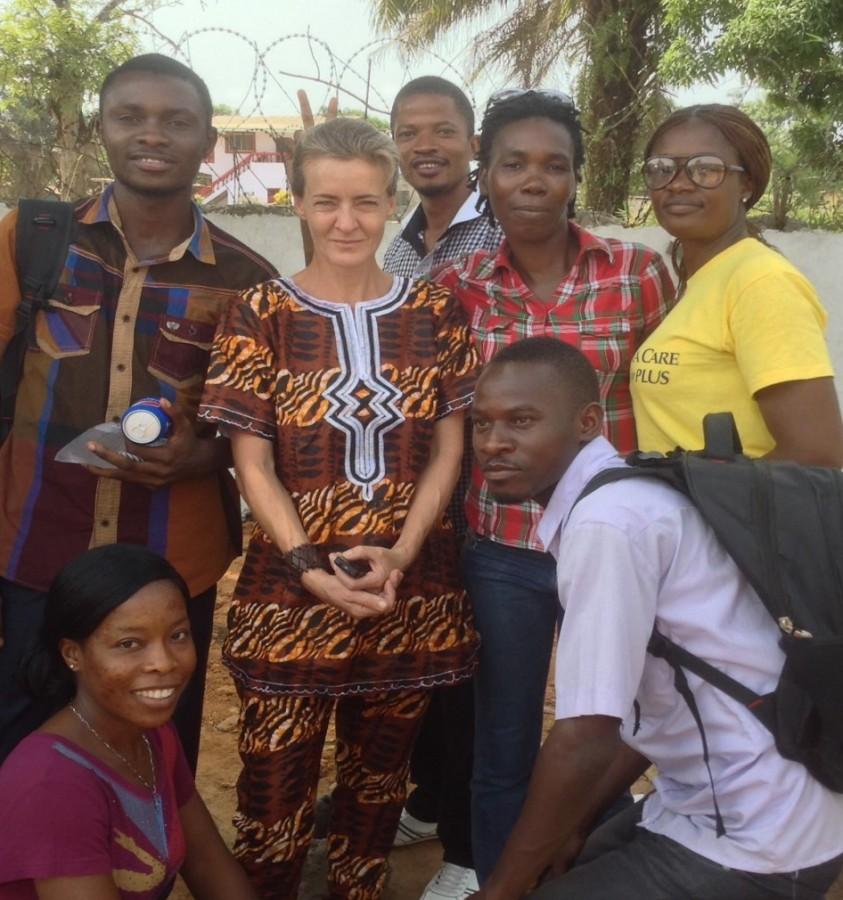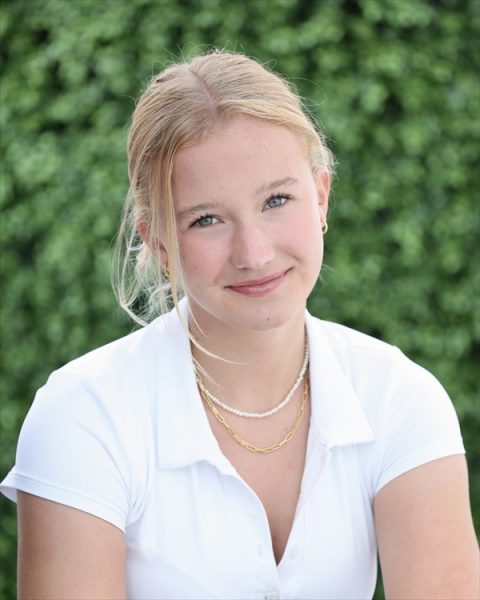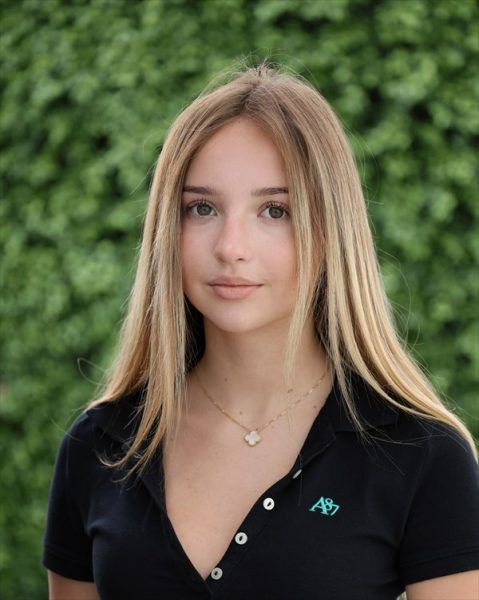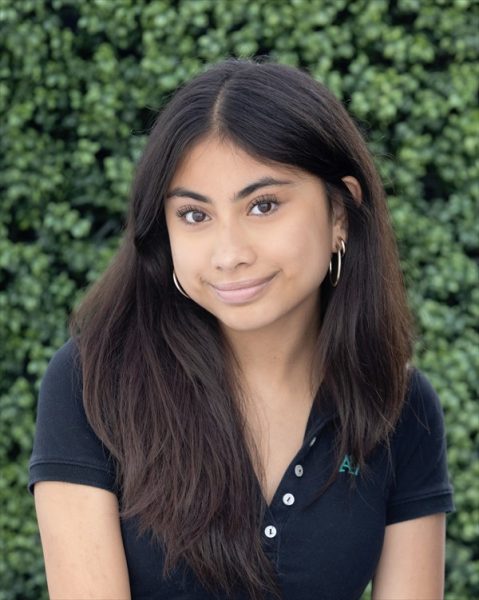Teacher-turned-nurse provides international aid working with Doctors Without Borders
Teacher-turned-nurse provides international aid through work with Doctors Without Borders.
Former French and drama teacher Miriam Czech, who currently works with Doctors Without Borders, takes a photo with her health promotion team in Monrovia, Liberia. Czech has worked as a nurse, translator and radio operator for the organization.
March 15, 2016
From aiding in trauma care in Yemen to managing Ebola response in Liberia, a former French and drama teacher is pursuing humanitarian work abroad for Médecins Sans Frontières, or Doctors Without Borders, an international non-governmental organization focusing on medical emergencies.
Miriam Czech, who taught for seven years at Convent, returned to MSF in 2006. She previously worked with the organization in Sri Lanka as a translator and radio operator, while teaching at an international school during the beginning of her teaching career, and has always held an interest in nursing.
“As an older and more mature nurse, having learned from being a teacher at Convent, I am able to put the needs of the person I am working with first,” Czech, whose husband also works for MSF, said. “So, it’s a patient-centered care just like we are student-centered culture at Convent. And, those are huge advantages that also allowed me to become a trainer of nurses. ”
Before earning her nursing degree, Czech was in charge of human resources in the Democratic Republic of Congo, working to return hospitals to the Ministry of Health while engaging in emergency programs in response to a choleric epidemic, a flood which required redistribution of medical supplies, a measles epidemic and a measles vaccination campaign.
“That response to the vaccination campaign where you basically vaccinate every child you can find in the middle of nowhere, carrying everything you need to maintain the cold chain, from rented fridges to tiny lunch boxes, all to keep the vaccines cold, it’s this nightmarishly huge task to do. It really pushed me and inspired me to come back and join nursing school.”
Having taken night classes while teaching at Convent to fulfill nursing school prerequisites, Czech left to earn her nursing degree and complete her clinical experience, returning to the field once again in 2012.
Since then Czech has trained nurses in South and North Yemen and South Sudan and helped open a labor and delivery center in Kabul, Afghanistan as Nursing Director. In Liberia she managed health promotion and public health services during the Ebola crisis. Most recently, as Head of Programming in North Yemen, she managed emergency stabilization and referral services in the conflict zone, and is currently in Dubai working on documentation.
“As medics we do less direct patient care in the field than you might think, so the photos they take of us holding a baby and wearing a stethoscope, we don’t always do,” Czech said. “We have highly qualified and culturally adapted national staff members who do most of the actual patient care. The non-local staff generally looks after management — resources, staffing, protocols, communications, and so on.”
A typical day for Czech is similar to one in the United States, composed of gathering information and using problem solving and evidence to advocate for her patients.
“Miriam’s work is at the interconnection between health and education, with a focus on women’s health,” Head of School Rachel Simpson, who taught French with Czech and has kept in contact with her through email, said. “I believe she’s driven by an awareness of global issues and a desire to respond to the issues that most affect underserved and underprivileged women in the world.”
This desire is mirrored by students, especially by junior Samrawit Beyene, who wants to become a heart surgeon and work in Ethiopia.
“I grew up watching interviews of people who couldn’t find treatments for life threatening diseases,” Beyene said. “I want to do some work with obstetric fistula (an abnormal connection between the rectum and the vagina). Affecting women, and mainly those who gave birth when they were younger, it’s an issue that’s really close to my heart.”
Many citizens In Middle Eastern countries lack easy access to public, free healthcare, and even those that do are reluctant to bring their families, especially for the females, according to Czech. Antibiotic resistance and poor regulation in private healthcare settings are also common problems.
Gender differences in the Middle East are an amplified version of what females experience in the U.S., according to Czech.
“Domestic or sexual violence exist, for example, but we see quite little,” Czech said. “In places like Yemen, I think girls’ bodies are generally respected more than in the U.S., with sad and terrible exceptions, of course.”
Young women’s opinions are often disregarded, and they marry young while having minimal sex education.
“Mostly women’s rights here and there are perceived very differently,” senior Sophia Slacik, who plans on majoring in international relations, with a possible concentration in Middle Eastern studies and a minor in global security, said. “For example, in Mr. Stafford’s AP Comparative Government class we talked about how Middle Eastern women who wear burkas feel very empowered, but burkas aren’t generally viewed with the same regard here in relation to female empowerment.”
Other countries believe they have a right to interfere, but Czech adds that these nations need to learn about the Middle East rather than assume blanket truths.
“In the West we tend to dismiss the Middle East as backwards, and that is spectacularly untrue especially in terms of the high quality media that you get in this part of the word,” Czech said. “Media coverage is given to all kind of issues and is many times more sophisticated and broad than anywhere in the US, where media may have more of an agenda and slanted way of presenting things.”
As someone with first hand experience in the field, Czech advises students to gather news sources from multiple avenues, as often times sources do not represent the entire story.
“This will give you a good idea of the assumptions and stereotypes we are carrying around without even realizing it,” Czech said. “Practicing awareness is the best thing you can do, so when somebody asks you a question or it comes time for you to make a decision as a voter or participant in a discussion, you will have clear facts at your disposal.”










